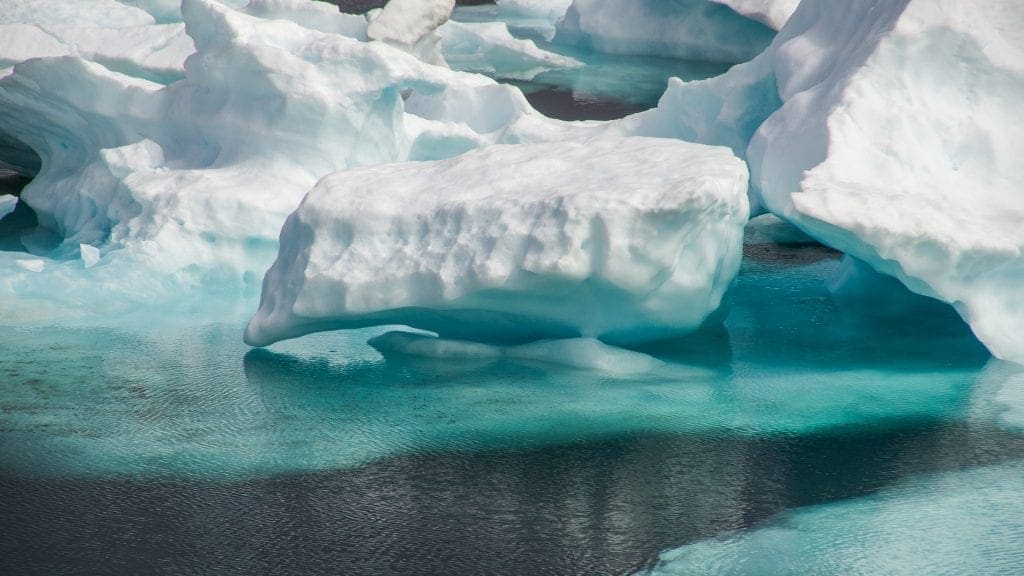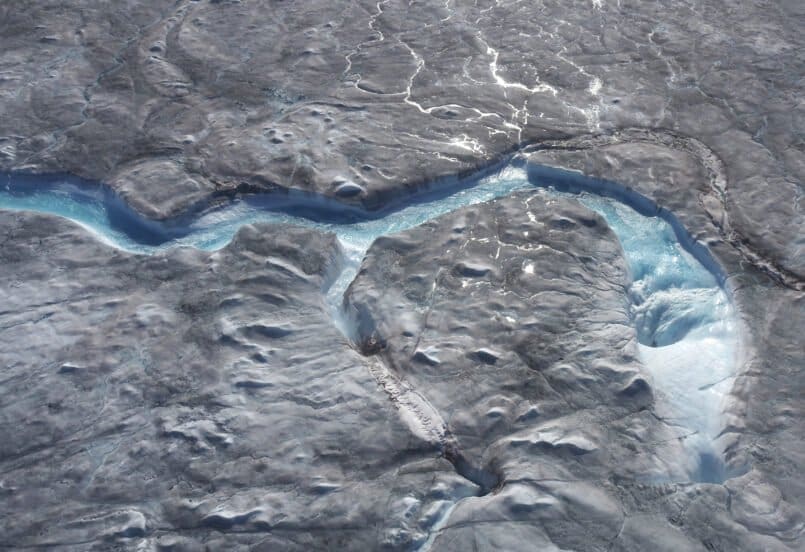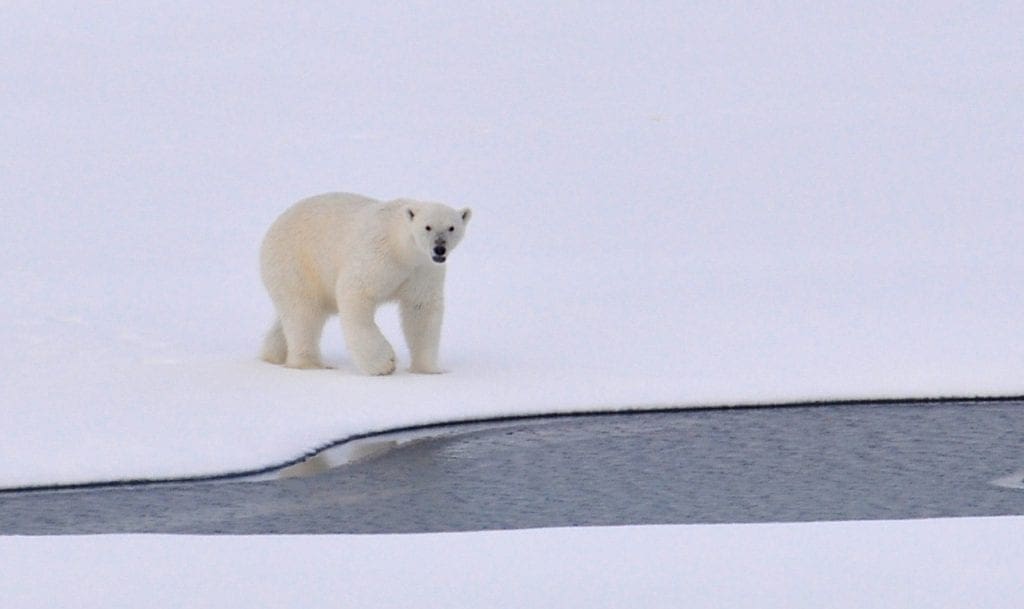Greenland, home to the second biggest ice sheet in the world, recently witnessed over 12 tonnes of ice melting in a single day, reports Mashable.
This is one of the country’s most extreme melting events in history, similar to a melting episode which occurred in 2012. It is thought to be a result of the roasting European air which has settled over the Arctic region.
Josh Willis, a NASA scientist who researches Greenland’s melting glaciers, told Mashable:
It’s no surprise that Greenland keeps setting records for melt and high temperatures.
The entire planet is getting warmer, but the Arctic is warming faster than every place else.

Zack Labe, a climate scientist from the University of California added that climate models from the 1970s predicted the accelerated warming in the Arctic that is currently taking place.
He says more major melting events are to be expected:
This [warming] is projected to continue without a reduction in greenhouse gas emissions.

More than half the ice sheet experienced melting on July 31, with more than 10 billion metric tons of ice melting from the surface, according to data from the Danish Meteorological Institute.
Although this event is just one extreme episode, Greenland’s long-term melting trends are already becoming clear. Melting events have increased in Greenland over the last 20 years and recent research suggests this rate of melting could potentially be the fastest it has been for thousands of years.
This is a roaring glacial melt, under the bridge to Kangerlussiauq, Greenland where it's 22C today and Danish officials say 12 billions tons of ice melted in 24 hours, yesterday. pic.twitter.com/Rl2odG4xWj
— Laurie Garrett (@Laurie_Garrett) August 1, 2019
Willis continued:
Greenland has had more ice melt than the yearly snowfall can replace since at least the 1990s. And this warm spell is consistent with that trend.
Labe added:
While it is important to note that not every year will feature record warmth or loss of land/sea ice, the long-term trends are clear

Greenland isn’t alone in seeing such unprecedented melting. Extreme warming trends are now being seen all over the Arctic with sea ice in the region currently at its lowest level on record for hundreds of years.
This is not just an added threat to already endangered polar bears, but melting ice caps and rising sea levels are a potential threat to the entire planet.
Willis said:
We are watching these huge ice sheets shrink every year now, and there is no sign of that stopping any time soon.
